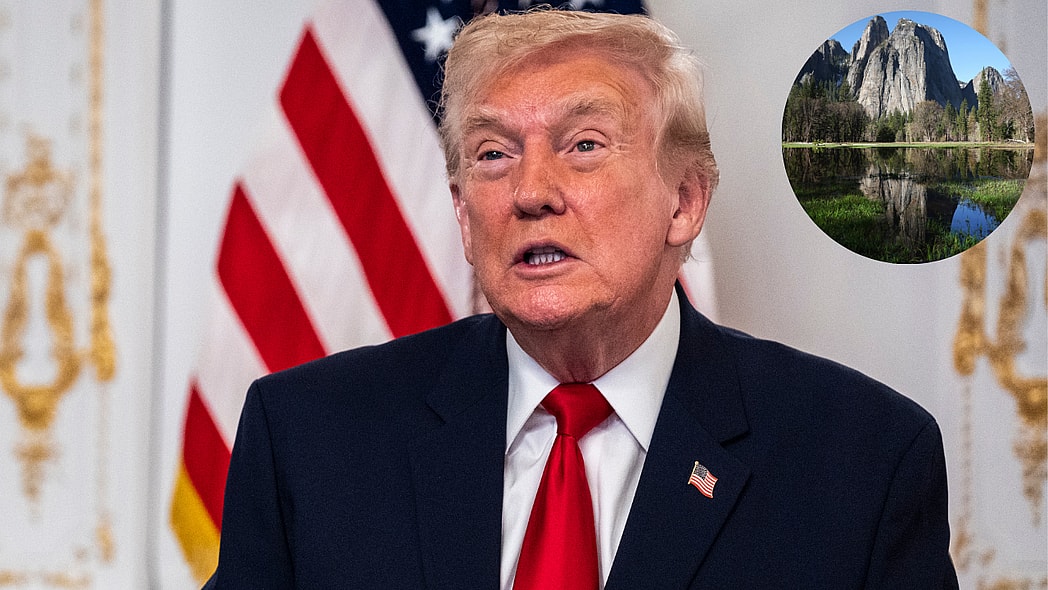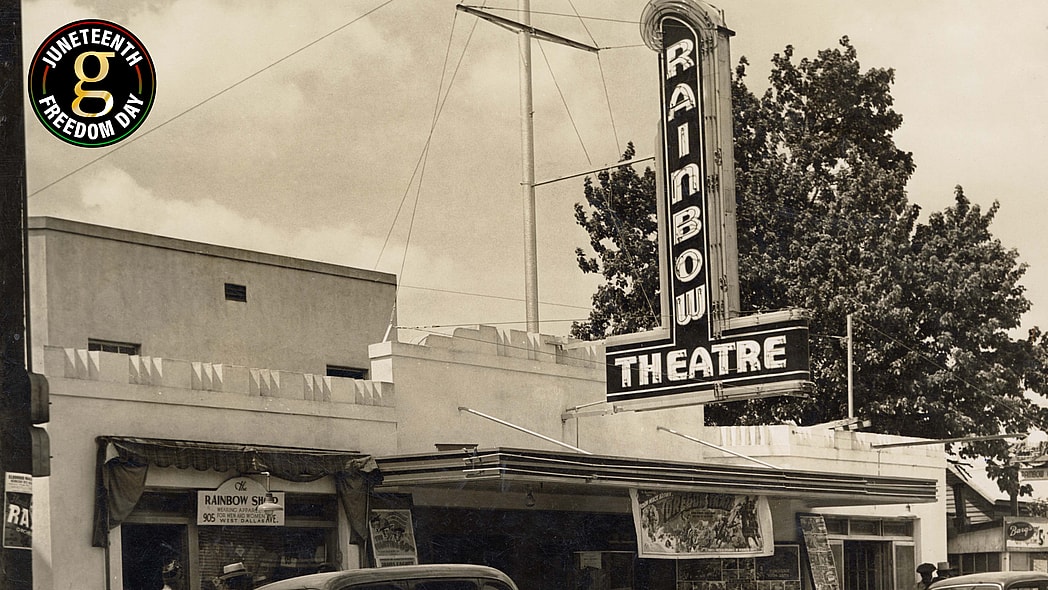The annual celebration has been a long-standing tradition in Black communities across the country. But today, Juneteenth is a national holiday in the U.S., one that has transcended cultures and geographical borders to commemorate a monumental day in history.
While many people celebrate America’s “second Independence Day” with festivities channeling joy and jubilance amid the storied hardship, it’s equally important to honor the day’s historical significance and what it symbolizes for Black Americans.
If you wish to learn more about June 19 and why it’s important, here’s a look at its origin, cultural significance and more.
What is Juneteenth?
Juneteenth, also known as Emancipation Day, Freedom Day, Jubilee Day and Black Independence Day, is a holiday celebrating the emancipation of enslaved people in the U.S. The annual celebration commemorates Union Major General Gordon Granger’s arrival in Galveston, Texas, on June 19, 1865, to announce the end of the Civil War and, thus, the end of slavery.
Juneteenth as a celebration of freedom
Since that monumental day in 1865, Black Americans have embraced the holiday as their true Independence Day, marking the end of chattel slavery in the U.S. From the first celebrations in Texas to present-day events, Juneteenth honors the trials, hardships and sorrows of the past by relishing the freedom, joy, community and empowerment that liberation has granted today and in the future.
Juneteenth as a historical event
Juneteenth’s historical significance can’t be understated. June 19, 1865, marked a turning point in America’s history and Black people’s continued fight for racial equality and justice. The holiday’s history and origins deserve to be honored amid celebrations of joy and freedom.
The origins of Juneteenth
There’s a deeper significance of Juneteenth that warrants recognition. Maj. Gen. Granger’s and Union troops’ arrival in Galveston, Texas, came nearly two and a half years after President Abraham Lincoln issued the Emancipation Proclamation, freeing people held in chattel slavery in the once Confederate, or rebellious, states.
The Emancipation Proclamation
Lincoln issued the Emancipation Proclamation on Jan. 1, 1863, nearly three years into the American Civil War. The proclamation, issued as a military measure, ordered “that all persons held as slaves” within states rebelling against the U.S. be freed.
Notably, the purpose of the war wasn’t to end slavery. Initially, the Union sought to stop the expansion of slavery into the western territories and preserve civil rights and free labor in the nation moving forward. Lincoln eventually shifted his military strategy to emancipate enslaved people under Confederate control, as they were being forced to support the war effort as teamsters, cooks, laborers and body servants. It evolved into a war for freedom for the Union, as the fight emboldened enslaved Black Americans in their quest for freedom.

While the Emancipation Proclamation didn’t abolish slavery in the United States, it was instrumental in dismantling the system of slavery in the nation. As federal troops advanced into Confederate territory, enslaved people would flee to Union army camps to legally claim their freedom. Others escaped to Union lines during the war, finding refuge in make-do villages called contraband camps.
It wasn’t until the passing of the 13th Amendment to the U.S. Constitution by the House of Representatives on Jan. 31, 1865 — which abolished slavery and involuntary servitude, except as punishment for a crime — that all enslaved people across the entire United States were freed.
The delayed arrival of freedom in Texas
Texas voted to secede from the Union on Feb. 23, 1861, and joined the Confederate States of America. While the state was largely unaffected by the war, some enslaved Black Texans were moved frequently to avoid Union troops or were forced to support the Confederate Army.
Yet, two years after Lincoln’s Emancipation Proclamation, more than 250,000 African Americans remained enslaved in Texas. Without pressure from Union troops to enforce it, the proclamation had little impact on Texans — making it easy for slaveholders to keep the news from those enslaved to preserve slavery in the state and continue reaping its economic contributions.
General Order No. 3
It wasn’t until Granger traveled to Galveston, Texas, and performed a public reading of General Order No. 3 on July 19, 1865, that all enslaved Texans were freed. General Order No. 3 declared that “in accordance with a proclamation from the Executive of the United States, all slaves are free.”
The legal decree has been praised for its progressive language. It also declares “absolute equality of personal rights” and that the existing relationship should subsequently “become that between employer and hired labor.”
Over a century later, many Black Americans include public readings of General Order No. 3 in their Juneteenth traditions to commemorate the historic announcement.
The significance of Juneteenth
Before the Civil War, enslaved people revered and honored the Fourth of July as a symbol of power. The idea that all men were created equal was aspirational and symbolized hope for equality.
But to quote famed writer and abolitionist Frederick Douglass, “What to a slave is the Fourth of July?” Following the announcement of General Order No. 3 in Galveston, formerly enslaved people and their descendants began to view Juneteenth as their true emancipation day, as it marked the day all individuals held in chattel slavery were freed.
Symbolism of Juneteenth
For Black Americans, the holiday symbolizes freedom, resilience and perseverance. It tells the story of racism, emancipation and past traumas while serving as a beacon of hope for continued progress and change. Despite its troublesome origins, Juneteenth has also helped foster joy and unity among Black people despite the grief of the past.
Historical importance of Juneteenth
Juneteenth isn’t reserved only for Black Americans. It marks a defining moment in America’s history, providing an opportunity for everyone to learn about the country’s history of slavery and racial injustice and its impact on Black people. Recognizing Juneteenth’s historical significance is more important than ever, as campaigns to ban Black history and African-American studies threaten ongoing efforts to achieve racial justice.
Juneteenth celebrations and traditions
The first official Juneteenth celebrations took place in Galveston and Houston, Texas, in 1866, and Black people celebrated with food, singing and the reading of spirituals. Juneteenth’s original name was Jubilee Day, and it marked the first anniversary of the day the remaining enslaved people were freed, nearly two years after issuing the Emancipation Proclamation.
Early celebrations typically involved family and church-centered community gatherings. At some point, formerly enslaved people and their descendants embarked on annual pilgrimages to Galveston as part of their Juneteenth traditions. In 1872, a group of formerly enslaved people purchased 10 acres of land in Houston to create Emancipation Park — a dedicated location to celebrate Juneteenth.
Today, Juneteenth celebrations extend beyond Texas communities and include a range of festivities, from intimate gatherings to community-sponsored events. Here are a few ways to celebrate Juneteenth, with traditions spanning from its origins to the present day:
Community celebrations and festivals
Community events celebrating Juneteenth honor African-American culture through history, food, arts and entertainment. These events foster joy, togetherness and empowerment in the community while advocating for continued equality for Black people.
Parades and processions
Many cities host annual Juneteenth parades and processions to commemorate the holiday — like the Philadelphia Juneteenth Parade, which draws over 20,000 parade-goers each year. As people line the streets in their cities, these events pay homage to the early pilgrimages of formerly enslaved people to Galveston while putting Black history, heritage and culture on display.

Musical performances and cultural events
Juneteenth celebrations also spotlight many facets of African-American culture, including music, art, education, fashion and food. Depending on where you find yourself on Juneteenth, you can indulge in a variety of cultural events, like music festivals featuring blues, gospel and jazz music, art exhibitions spotlighting Black artists, fashion shows, food truck rodeos and much more. But whether you’re celebrating Juneteenth downtown or in your uncle’s backyard, the beauty and richness of Black culture will be well-represented.
Family gatherings and picnics
The first Juneteenth celebrations mostly comprised family gatherings, and that tradition has continued for many Black Americans today. If you’re gathering at a local BBQ or a family cookout, expect to see a variety of red food and drinks — like red velvet cake, hot dogs and strawberry soda — which are staples at Juneteenth celebrations, as red can represent resilience, power, resistance and transformation.
Juneteenth in modern times
Juneteenth has always served as a symbol of equality, empowerment and activism. For instance, early celebrations doubled as opportunities to mobilize the Black communities and teach them how to vote. But Juneteenth celebrations waned during the Jim Crow era, as Black Americans endured racial segregation, unfair treatment and discriminatory practices and were forced to commemorate the day in private settings.
The holiday experienced a resurgence during the Civil Rights Movement in the 1950s and 1960s. Black Americans were fighting for freedom and integration, and they used the holiday as a symbol of empowerment and a reminder of past struggles and sacrifices. During that time, it was primarily associated with civil rights, equality and voting rights.
But during the summer of 2020, after multiple police killings of Black Americans around the country and a wave of social and political activism, Black people gained a renewed interest in the holiday. Proponents advocated for celebrations that honored the history of Juneteenth origins and the joy of liberation.
The push for national recognition
During the spring and summer of 2020, multiple police-involved killings of unarmed Black people, including Breonna Taylor and Rayshard Brooks, ignited a rallying cry for racial justice and police reform.
But the murder of George Floyd by a Minneapolis police officer on May 25, 2020, marked a defining moment in present-day race relations in America. From mass protests around the world, public condemnations of systemic racism and the rise of the Black Lives Matter movement online and on the ground, Black people were determined to confront racism in America and achieve racial reform, equality and justice for the community.

Following these events, a racial reckoning swept the country, with demands for policy changes, boycotts and reform across various sectors, including policing, schools and corporate America. Companies publicized their diversity, equity and inclusion initiatives and policies like the 2020 George Floyd Justice in Policing Act to take actionable steps toward reform.
The events also changed how Black Americans viewed race and racial inequality in America. A 2020 Pew Research study found that 64% of Black adults started paying more attention to issues of race and racial inequality, while 65% were educating themselves on the history of racial disparities in the country.
This renewed focus on the history of the Black American experience propelled Juneteenth into the national spotlight. While Black people had been celebrating Juneteenth for more than 150 years, states, cities, universities and activists across the country pushed to give the holiday the recognition it deserves.
Advocacy for Juneteenth as a federal holiday
The advocacy to declare Juneteenth a national holiday began long before the summer of 2020.
Initially, a few states led the charge in recognizing Juneteenth as a legal holiday. Texas became the first state to designate Juneteenth as a holiday in 1980 with Texas House Bill 1016, authored by former State Representative Al Edwards. Florida, Oklahoma and Minnesota followed suit, becoming the first states outside Texas to recognize Juneteenth as a state holiday in the 1990s.
Activist and founder of the National Juneteenth Observance Foundation (NJOF) Rev. Ronald V. Myers Sr., M.D., was a driving force behind the modern-day Juneteenth movement, advocating for the holiday’s recognition on both state and national levels. According to an article in Galveston’s The Daily News on Myers’ passing, he “was instrumental in laying the groundwork to make Juneteenth Independence Day a national day of recognition.” He was vital in passing legislation recognizing Juneteenth in 45 states and the District of Columbia.
Fast-forward to today. Others have picked up the torch, including supporters of Black Lives Matter and the National Juneteenth Observance Foundation, to cement Juneteenth as a significant historical celebration deserving of recognition.
Thanks to their tireless efforts, President Joe Biden signed S. 475, the “Juneteenth National Independence Day Act,” on June 17, 2021, declaring Juneteenth a legal public holiday. Today, Juneteenth is recognized as a holiday or observance in all 50 states and the District of Columbia, and some have even designated it as a paid or legal holiday.
In his Proclamation on Juneteenth Day of Observance, President Biden emphasized the need to “recognize Juneteenth as a way to reconcile our past” and recognized key advocates, including former State Rep. Edwards and Opal Lee, in the quest to make Juneteenth a federal holiday.
The role of Opal Lee in the Juneteenth movement
Ms. Lee, affectionately known as the “Grandmother of Juneteenth,” also played a pivotal role in catapulting Juneteenth to national recognition.
A lifelong activist, Lee served the community as a schoolteacher and home-school counselor. In her later years, she supported unhoused communities and operated a food bank, farm and community garden. Eventually, she shifted her focus to a mission that would become a part of her lasting legacy: making Juneteenth a federal holiday in the United States. According to the Real Opal Lee website, she believed “the country needs and wants the unity that celebrating the abolition of slavery can bring.”
Lee’s dedication to reclaim the day was birthed more than 80 years ago when a white, racist mob destroyed her family home in Forth Worth, Texas. She recalls a white crowd gathering outside their home on June 19, 1939, as they proceeded to discard their furniture before destroying their home and “burning it to the ground,” according to CNN.
So in 2016, the then-89-year-old Lee began Opal’s Walk 2 DC to convince Congress and the administration to recognize Juneteenth as a federal holiday. Her goal was to walk the 1,400 miles from Fort Worth, Texas, to Washington, D.C., stopping in cities like Shreveport, Chicago and Atlanta to galvanize supporters and collect signatures for her petition. While she didn’t walk all 1,400 miles, she raised awareness of Juneteenth in cities across America. Five years later, her quest paved the way for making Juneteenth a nationally recognized holiday.
At 97, Lee serves as an honorary national co-chair of the Juneteenth Legacy Project and remains a dedicated advocate for the unity, healing, and progress that Juneteenth brings.
Juneteenth worldwide
Once a holiday reserved for native Texans, the reverence of Juneteenth has extended beyond the state and country’s borders. It’s an opportunity for the world to reflect on the harsh realities of systemic racism while educating the world on Black heritage and culture and rejoicing in the liberation of an entire race.
Juneteenth celebrations outside of the United States
Countries worldwide, including Canada, Nigeria, South Korea and the United Kingdom, celebrate Juneteenth. Similar to celebrations held in the U.S., festivities include music festivals, parades, marches and food.
But before gaining international recognition in recent years, Juneteenth was celebrated by African descendants all over the world. There’s Día de Los Negros in Mexico, commemorated by formerly enslaved Black people who fled Texas and settled in Mexico, south of the Texas border. Celebrations include music, dance, a parade of horseback riders and Afro-Seminole cuisine.
The influence of Juneteenth on Black liberation movements

Since its inception, Juneteenth has been a symbol of freedom, resilience and the continued pursuit of racial equality and reform in the Black community. It also invokes difficult conversations about the history of racism and racial injustice in America.
As such, Black activists throughout time have embraced the holiday as a way to build upon the progress achieved and assert their identity as a free and empowered people. They have leveraged the holiday to engage in thoughtful dialogue around racial inequality and race relations in America, promote unity based on shared experiences and mobilize supporters for their cause.
Juneteenth and the fight for equality
Despite the emancipation of the remaining enslaved people on June 19, 1865, the fight for equality continued. Juneteenth serves as a launching pad for Black Americans’ ongoing struggle for racial justice and reform.
Juneteenth as a catalyst for change
Juneteenth is centered around joy and togetherness. But celebrations, particularly those sponsored by community or state organizations, also provide opportunities to promote education, dialogue, economic empowerment, representation and service — all to support ongoing efforts for freedom and equality within and beyond the Black community.
From panel discussions on race and history to “Shop Black” campaigns, Juneteenth helps to shift the conversation to one that reveres, uplifts and bolsters Black history and culture.
Juneteenth and racial justice
The original Juneteenth was a monumental step toward racial justice. For the more than 200,000 enslaved people freed on June 15, 1865, it was the ending of a dark and harrowing era but the beginning of a lifelong pursuit of equal treatment and opportunity as American citizens.
Almost 160 years later, the journey toward progress continues for Black people in America. Juneteenth is a reminder that racial justice is possible. It fuels the efforts of activists and allies today.
As you celebrate Juneteenth — between bites of barbeque fresh off the grill or the melodies of the local blues band — take a moment to reflect on the holiday’s history and the fight ahead. Then, commit to embodying the freedom, resilience and power the day represents.










